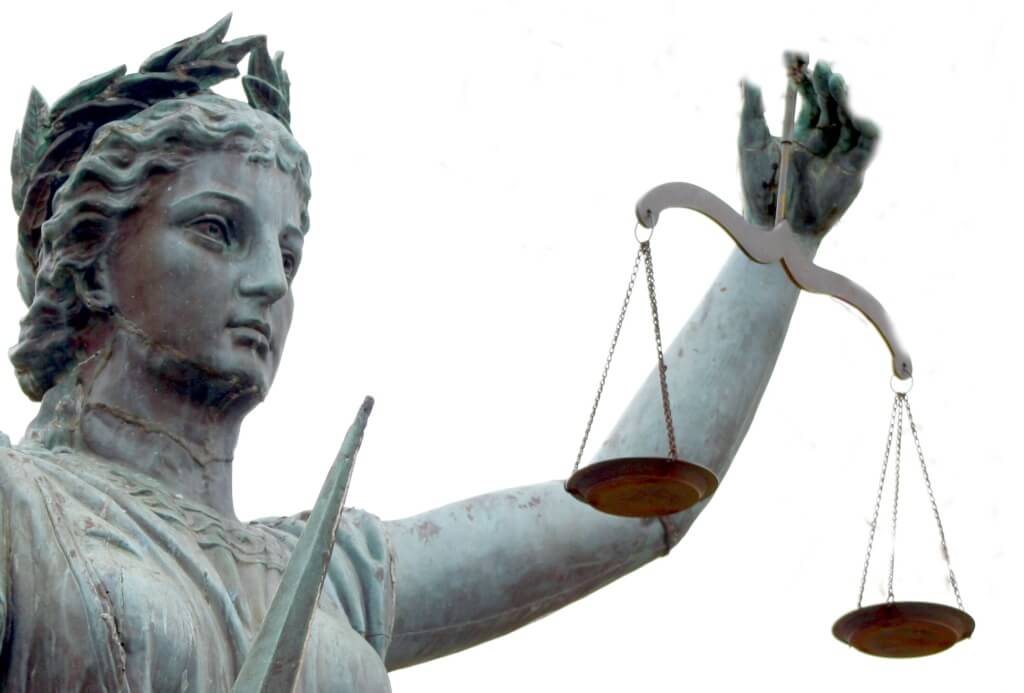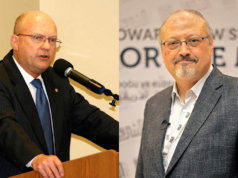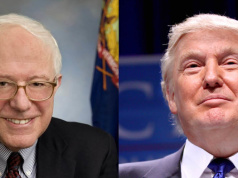
(Editor’s Note: Two days after the publication of this piece, the U.S. Supreme Court announced its decision not to hear the case in question. The following piece has been updated with an addendum discussing the decision.)
Most of us received a cursory explanation of what federalism means from public education. Current events, specifically Oklahoma and Nebraska’s attempts to make Colorado change its marijuana laws, may help us crystalize that explanation.
We are the United States. “States.” Plural. Evidenced by our very name, the Constitution is more or less just a contract between the states to agree to unify on specific issues. We are not a single governmental entity but rather several entities that have come together and agreed to cede certain powers to a central authority that we call the federal government. We have carefully enumerated what the federal government may do (see Article I, section 8) and have specifically, though maybe unnecessarily, specified that all other powers are reserved by the states (see Amendment X.)
The Controlled Substances Act, the bill that the DEA uses to enforce federal marijuana prohibition, is empowered by Article I, Section 8, clause 3, known as the Commerce Clause:
The Congress shall have power … To regulate Commerce with foreign Nations, and among the several states, and with the Indian Tribes.
What does that have to do with banning drugs?
Glad you asked! it’s actually a fascinating story.
Fat sacks of wheat
Way back in the 1930s, when FDR was giving us a New Deal, Congress passed a law that would regulate national wheat production. Farmers were having serious problems with anticipating the price their crops would return — one year everyone would grow wheat and the price would plummet, the next year, remembering the disaster of the year before, no one would grow it, and the price would skyrocket, leading most farmers to grow it again the next year, thereby plummeting the price again and so on.
So, Congress passed a bill that would set a national quota system to try to combat these supply swings. Farmers were allotted a certain acreage on which they could grow wheat, but they would face a fine if they grew any more.
One year, a guy named Roscoe Filburn was allotted 11.1 acres on which to grow wheat under the quota system. He farmed that allotment and sold the harvest on the market. He also grew wheat on an additional 11.9 acres that he did not sell, but rather used as feed for his livestock and for personal consumption. The Feds fined him when they discovered his excess production. Mr. Filburn took it all the way to the U.S. Supreme Court, claiming the Commerce Clause could not give the Feds power to fine him over wheat that never even left his farm, let alone entered “commerce among the several states.”
The Court disagreed.
If Mr. Filburn had not grown the extra wheat, he would have either had to purchase it on the market or not have sold the wheat he was legally allowed to grow. Either of those options would have affected the national price of wheat, thus his excess production, even though it did not leave his farm, had an aggregate effect on interstate commerce, and the Fed had the power to fine him under the Commerce Clause. Though his individual impact on the price of wheat would be small, if 100,000 farmers did what Mr. Filburn did, that would make the quota regulation meaningless and put wheat farming right back where it started.
Is a ban the same as regulation?
Wickard v. Filburn hugely expanded the power of Congress to pass laws that regulate commodities, and, in 1970, Congress passed the Controlled Substances Act (CSA), regulating many pharmaceuticals and outright banning some, such as marijuana. But, is a ban “regulating commerce” under the Wickard v. Filburn logic?
Yes, it is. So let’s fast forward to the 21st Century.
Angel Raich was a citizen of California who suffered from excruciating pain. She and her physician had attempted numerous remedies, but marijuana was the only remedy that provided relief. California had allowed medical marijuana for patients like Ms. Raich, but the CSA, and therefore Federal law, did not.
The DEA busted another woman in a similar position to Ms. Raich, so Raich sued for injunctive and declaratory relief, claiming the CSA’s complete prohibition of marijuana was a violation of her Constitutional rights as well as being more than a mere “regulation” of interstate commerce allowed by the Commerce Clause.
The Court disagreed with her.
In Gonzales v. Raich, the court found that the home production of marijuana was no different than Mr. Filburn’s home production of wheat, and that Ms. Raich’s consumption of marijuana had the same kind of aggregate effect on the national marijuana market that Mr. Filburn’s wheat consumption had on the price of wheat. Further, banning outright was simply another form of “regulation” within the gambit of the Commerce Clause. Despite California’s decision not to criminalize marijuana for Ms. Raich, the Feds could still bust her.
Supremacy Clause not necessarily supreme
What happens when a state chooses not to use their police power to regulate marijuana, but the Fed has used its power under the Commerce Clause to regulate it?
That’s where Article VI, Clause 2 of the Constitution, known as the Supremacy Clause, comes in (maybe):
This Constitution, and the Laws of the United states which shall be made in pursuance thereof; and all treaties made, or which shall be made, under the authority of the United states, shall be the Supreme law of the land; and the judges in every state shall be bound thereby, anything in the constitution or laws of any state to the contrary notwithstanding.
One may be forgiven for thinking this clause should end debate on the current Nebraska and Oklahoma v. Colorado case. The CSA was made in pursuance of the Constitution’s Commerce Clause, therefore it is the supreme law of the land, and the judges of Colorado should be bound thereby, notwithstanding Colorado’s decision to legalize marijuana. This would seem to be what Oklahoma Attorney General Scott Pruitt and the states of Oklahoma and Nebraska are arguing.
Fortunately (or unfortunately), it’s not that simple.
The supremacy clause means the states cannot pass laws to thwart a federal program (see McCulloch v. Maryland 17 U.S. 316) or end-around a ruling of the Supreme Court (see Cooper v. Aaron 358 U.S. 1). (Also, see every contraception- or abortion-related case written since Dec. 13, 1971.) The supremacy clause can most certainly tell a state to stop doing something in a certain way or stop doing something altogether, but it’s a different matter to order a state to go do something — like arrest someone for pot. The clause does not mean Congress can force the states to enforce federal law for them.
The Brady Bill as an example
In 1993, Congress expanded national regulation of firearms by instituting new background-check mechanisms. They proposed the creation of a national electronic background-check system that would instantly allow any seller of firearms to make sure they were not about to sell a firearm to a person who could not legally own one. It took some time, however, to set up the system.
In the interim, the bill proposed that firearm sellers receive certain information in the form of a sworn statement from the potential firearm purchaser. Sellers would then forward that information on to the “chief law enforcement officer” of the area where the purchaser resided. Said chief law-enforcement officer was then required to verify the information within five days.
RELATED
U.S. v. Texas: ‘Take Care’ not to expand judicial power by Sean Chesley
Jay Printz was the chief law enforcement officer for Ravalli County, Montana. He objected to the bill, essentially claiming Congress was not his boss, therefore they had no right to order him around to enforce federal programs by verifying the sworn statements of firearms purchasers.
The court agreed.
In Printz v. United States, the court found that even though the 1993 expansion of firearm regulations (the Brady Bill) was not itself unconstitutional, Congress could not conscript state and local agents to enforce federal law, even temporarily, such as until the national electronic background system would be put into place and Mr. Printz would no longer be bothered. Allowing Congress to conscript state and local agents this way would vastly expand the power of the federal government and would be inconsistent with the concept of federalism.
The pot, erm, plot thickens

The president could order the DEA to crack heads in Colorado, and the agency would legally be able to do so regardless of Colorado’s decision to legalize marijuana. Despite the current president’s decision not to do that, things aren’t all peachy in Colorado because of the conflict between state and federal law: They’ve got problems with taxes, banking, family law, employment law, legal representation and a host of other issues (see Erwin Chemerinksy’s fantastic UCLA law review article for further reading on those problems and some proposed solutions). Still, Colorado is not in danger of being forced to ban pot at the state level. That would change the entire meaning of federalism.
The plot, though, is thicker than that, as always. Oklahoma and Nebraska have been very careful in their argument. They are not challenging Colorado’s right to legalize marijuana per se, they are attacking Colorado’s right to regulate and tax marijuana. They aren’t exactly saying Colorado must go do something like enforce the CSA. Instead, they are saying Colorado must stop openly telling its citizens how they may cultivate and sell marijuana under Colorado law, and the state must stop profiting from it.
Depending on how you look at it, this isn’t quite a violation of the Printz principle. In effect, it might be. If Colorado were unable to form rules for the orderly production and distribution of marijuana then it would imply that Colorado would have to take action against those that cultivate and sell marijuana; however, Oklahoma and Nebraska do have an argument that isn’t completely settled by what we’ve seen so far.
States as laboratories for new policies
For an answer, we need to look beyond just settled law. We need to look at the value of federalism. Why is it good to have 50 states with the power to make their own decisions instead of just relying on a single unified authority? The best answer is an idea explained by the wonderfully articulate Justice Louis Brandeis in a losing argument.
In the early part of the 20th Century, prior to FDR and Wickard, the court exhibited what today we would term a “libertarian” mood. This was the so-called Lochner period, after Lochner v. New York. During this period, the court routinely struck down economic regulations that it believed were violations of the right to contract under the Due Process clause. Under Lochner logic, things we take for granted today like the minimum-wage and workplace-safety standards were considered to be unconstitutional. The Lochner period was pretty decisively ended by the New Deal cases, including Wickard.
At that time, Oklahoma passed a statute that regulated the production and distribution of ice. (No, not crystal meth, literally frozen water.) Ice production was a new and big thing in the ’20s, especially in hot places like Oklahoma that were heavily invested in industries that require refrigeration, like dairy production. Oklahoma attempted to regulate ice kind of how we regulate vital public utilities like water, gas and electricity. The state established a licensing scheme that would provide semi-monopolies to certain producers to ensure ice was delivered regularly and at a reasonably constant price throughout the state.
Then, a guy named Liebmann ignored the regulation and sold ice without a permit in Oklahoma City. When the company that had the right under the regulation to sell ice in Oklahoma City sued to stop him, the court sided with Liebmann in New State Ice Co. v. Liebmann. Under Lochner logic, the state’s regulation was an impermissible intrusion into private business.
Justice Brandeis disagreed. He argued in dissent that the Oklahoma statute was a reasonable state experiment that, despite the Lochner precedent, should be allowed to continue. The reason this is relevant to Nebraska and Oklahoma’s case against Colorado is because he concluded with this:
To stay experimentation in things social and economic is a grave responsibility. Denial of the right to experiment may be fraught with serious consequences to the nation. It is one of the happy incidents of the federal system that a single courageous State may, if its citizens choose, serve as a laboratory; and try novel social and economic experiments without risk to the rest of the country.
This is the beauty of our federalist system: We have 50 potential laboratories to experiment with novel policies. Perhaps Colorado should take greater steps to prevent marijuana from spilling over into other states and thereby creating risk to the rest of the country, but it would do us a disservice to stay their experiment prematurely.
If regulated and taxed marijuana does not ultimately serve the public interest in Colorado, then at least the other states, including Oklahoma and Nebraska, will know to avoid going down that road. If it does serve the public interest, then other states, and maybe even the federal government, will learn that, too.
Addendum: Court will not hear claim
On Monday, March 21, the Court denied Oklahoma and Nebraska’s attempt to bring their claim without comment. Justice Clarence Thomas made a dissent.
While this order does mean the Court will not be ruling on Colorado’s supposed violation of Federal law for the time being, it is not the end of the story. If the United States, by and through the Office of the Solicitor General, chose to make exactly the same claim Oklahoma and Nebraska made against Colorado the court might well hear it. The solicitor general is appointed by the president of the United States. The current solicitor general, Donald B. Virrelli, has not made such a claim because the
President has not ordered him to; in fact Mr. Virrelli filed a brief in the case arguing the court should do what it did today.
However, the next president may appoint a different solicitor general, one inclined to end Colorado’s experiment.






















